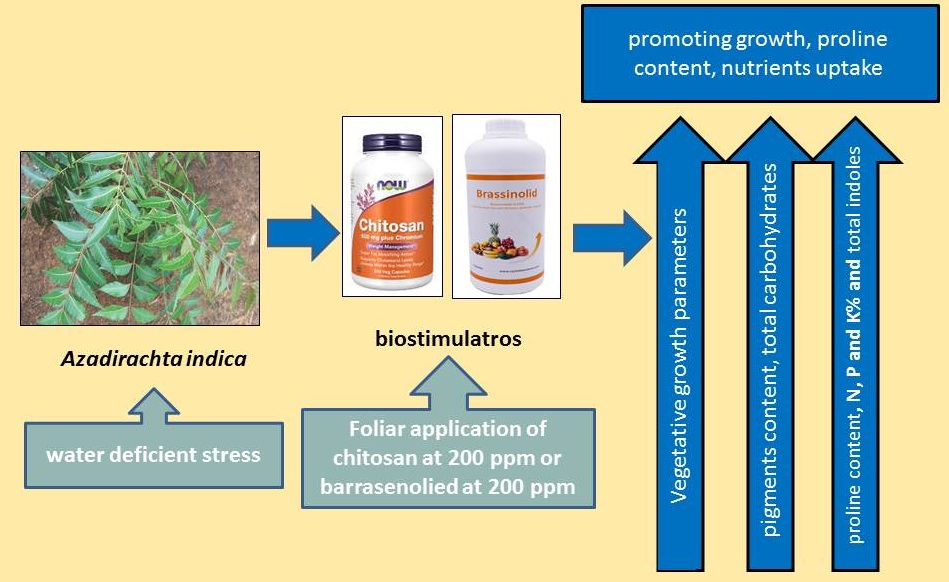Exogenous application of biostimulators alleviates water deficient stress on Azadirachta indica plants

Published 2022-12-23
Keywords
- Brassinolide,
- chitosan,
- drought stress,
- neem
How to Cite
Copyright (c) 2023 Hossam Ahmed Ashour

This work is licensed under a Creative Commons Attribution 4.0 International License.
Abstract
Pot experiment was conducted to evaluate the effect of chitosan or brassinolide applications on morphology and physiology parameters of Azadirachta indica grown under water deficient stress. The plants received different irrigation intervals, and were sprayed monthly with either chitosan or barrasenolide each at concentrations of 50, 100 and 200 ppm, while the control plants were sprayed only with tap water. The results showed that water stress reduced all growth parameters, chemical constituents of pigments content, total carbohydrates, N, P and K %, total indoles, while proline and total phenols content were increased. Instead, the plants sprayed with the higher concentrations of chitosan or brassinolide resulted in significant increase in growth parameters, pigments content, total carbohydrates, proline content, N, P and K %, total indoles while reduced total phenols content. Based on the obtained results it can be concluded that, foliar application of chitosan or brassinolide at 200 ppm can alleviate the adverse effects of water deficient stress on the growth and physiology parameters of Azadirachta indica.




